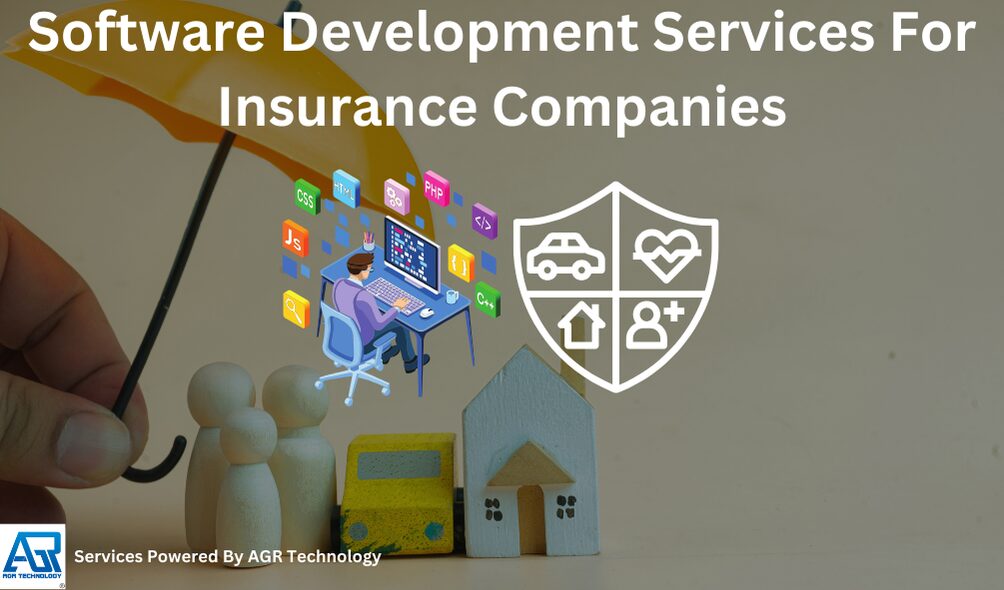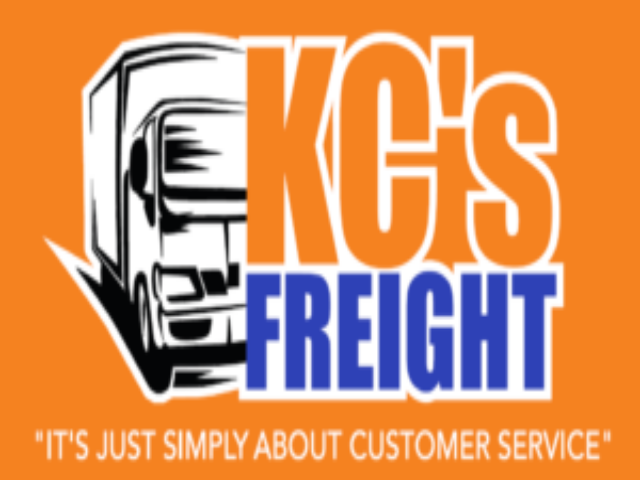In today’s fast-evolving insurance landscape, companies are turning to specialized software development services to stay competitive. The insurance industry is undergoing rapid transformation due to changing customer demands, enhanced connectivity, increased digitization, and the adoption of new technologies. Software solutions have become essential tools for insurers looking to streamline operations and meet modern market challenges.
Custom insurance software development helps businesses replace outdated systems, reduce manual processes, minimize human errors, and create seamless digital experiences for customers, employees, and partners. These solutions automate critical processes like underwriting, claim management, and policy administration—ultimately leading to improved operational efficiency, increased customer loyalty, and expanded client reach. With the right software tools, insurance companies can significantly reduce operational costs while driving revenue growth in an increasingly competitive marketplace.
Get in touch to discuss your project needs:
Reviews from our happy clients:
Proudly supporting clients of all sizes to succeed through digital solutions
Why work with us?
Understanding Software Development Services for Insurance Companies

Software development services transform insurance operations by automating manual processes and creating seamless digital experiences. These specialized services help insurers replace outdated systems, reduce human errors, and enhance customer interactions—all while cutting operational costs and increasing revenue.
Insurance companies face unique challenges in today’s rapidly evolving market. Changing customer demands, increased digitization, and enhanced connectivity require modern software solutions that address specific industry needs. At AGR Technology, we can develop custom insurance software that enables companies to streamline operations and stay competitive in this dynamic landscape.
Our insurance software development services focus on several critical areas:
- Claims Processing Automation – Reducing manual handling and accelerating settlement timeframes
- Policy Management Systems – Centralizing policyholder information and streamlining renewal processes
- Underwriting Tools – Enabling data-driven risk assessment and pricing decisions
- Customer Service Platforms – Creating intuitive self-service portals for policyholders
Working with a software development agency like AGR Technology gives you access to certified professionals skilled in emerging technologies including AI, IoT, and low-code/no-code solutions. Our developers integrate these technologies to create robust systems that improve accuracy, enhance security, and reduce costs across your operations.
Key Challenges in the Insurance Industry
The insurance industry faces significant challenges in today’s rapidly evolving digital landscape. These obstacles impact operational efficiency, customer satisfaction, and competitive positioning in a market that increasingly demands innovative solutions.
Regulatory Compliance Requirements
Regulatory compliance presents a complex challenge for insurance companies. Insurance providers must navigate a maze of constantly changing regulations that vary by region and product type. Compliance failures often result in hefty fines, legal penalties, and reputational damage. Modern compliance management systems automate regulatory tracking, documentation, and reporting processes, reducing human error and ensuring timely adherence to industry standards. These specialized software solutions provide real-time updates on regulatory changes and streamline the implementation of new requirements across all departments.
Legacy System Integration
Legacy systems continue to hamper innovation and efficiency in the insurance sector. Many insurers operate with decades-old technology that lacks modern capabilities, creates data silos, and requires expensive maintenance. These outdated systems limit cross-departmental communication, delay customer service responses, and complicate the adoption of new technologies. Integration middleware bridges the gap between legacy platforms and modern applications, enabling insurers to preserve existing investments while gradually transitioning to more advanced solutions. Custom APIs connect disparate systems, facilitating smooth data flow and enhanced functionality without complete system overhauls.
Data Security Concerns
Data security remains a paramount concern for insurance companies handling vast amounts of sensitive information. The industry experiences targeted cyber attacks at increasing rates, with breaches potentially exposing personal, financial, and health data. Insurance organizations must implement robust security protocols, encryption standards, and threat detection systems to protect client information. Advanced security software provides multi-layered protection including access controls, encryption, intrusion detection, and regular vulnerability assessments. Real-time monitoring solutions detect suspicious activities, automatically isolating potential threats before they compromise sensitive data assets or operational capabilities.
The insurance industry also grapples with customer expectations that have evolved dramatically in the digital age. Today’s insurance customers demand seamless digital experiences, personalized services, and rapid response times. Addressing these expectations requires sophisticated software solutions that create intuitive interfaces, streamline communication channels, and deliver tailored recommendations based on customer data and behavior patterns.
Talent acquisition presents another significant hurdle, particularly for technical roles. Insurance companies often struggle to attract and retain professionals with expertise in emerging technologies like artificial intelligence, blockchain, and data analytics. This talent gap can slow digital transformation initiatives and limit an organization’s ability to implement cutting-edge solutions that drive competitive advantage.
Data management challenges further complicate operations as insurers collect massive amounts of information but often lack the tools to extract meaningful insights. Advanced analytics platforms transform raw data into actionable intelligence, enabling more accurate risk assessment, fraud detection, and personalized customer offerings.
Essential Insurance Software Solutions

Insurance software solutions transform operational efficiency and customer experience through specialized digital tools. These tailored systems address the unique challenges of insurance providers while incorporating industry best practices.
Policy Administration Systems
Policy administration systems streamline the complete lifecycle of insurance policies from creation to renewal. These systems automate policy issuance, billing, endorsements, and renewals through customizable modules that adapt to specific business requirements. Modern policy administration platforms offer:
- Automation tools that reduce manual data entry and minimize processing errors
- Real-time updates that ensure policy information remains current across all touchpoints
- Compliance frameworks that automatically incorporate regulatory requirements into policy documents
- Self-service portals that allow policyholders to make changes and access documents independently
Claims Management Software
Claims management software automates the end-to-end claims process from initial filing to final settlement. These solutions incorporate artificial intelligence for validation, damage estimation, and fraud detection while maintaining compliance with industry regulations. Advanced claims systems provide:
- Digital claim submission tools that capture all relevant information at first notice of loss
- Automated workflows that route claims to appropriate adjusters based on complexity
- Integrated payment systems that expedite settlements directly to policyholders
- Analytics dashboards that identify trends and improvement opportunities
Underwriting Automation Tools
Underwriting automation tools leverage data analytics and artificial intelligence to evaluate risks more accurately and consistently. These systems integrate external data sources with internal information to create comprehensive risk profiles for faster decision-making.
Key capabilities include:
- Risk assessment engines that analyze application data against established parameters
- Predictive modeling tools that identify potential issues before policy issuance
- Document verification systems that automatically validate submitted information
- Rules-based decision support that ensures consistent underwriting standards
Automated underwriting platforms reduce decision time from days to minutes while improving accuracy and maintaining appropriate risk exposure levels.
Customer Relationship Management
Insurance-specific CRM systems centralize customer information and interactions across all touchpoints to enhance service and sales opportunities. These platforms offer complete visibility into the customer journey, enabling personalized engagement strategies and improved retention. Essential features include:
- Unified customer profiles that aggregate policy, claims, and interaction history
- Opportunity management tools that identify cross-selling and upselling possibilities
- Communication tracking across all channels including email, phone, and digital platforms
- Performance analytics that measure customer satisfaction and agent effectiveness
Advanced Technologies Transforming Insurance Software
Advanced technologies are revolutionizing insurance software development, creating more efficient, accurate, and customer-centric solutions. These innovations enable insurance companies to automate processes, enhance decision-making, and deliver personalized experiences that meet evolving customer expectations.
Artificial Intelligence and Machine Learning
AI and machine learning transform insurance operations by automating complex processes and delivering data-driven insights. These technologies power predictive analytics that instantly determine risks and select suitable policies based on comprehensive data analysis. Insurance companies implementing AI-enhanced solutions experience:
- Automated underwriting – Algorithms analyze applicant data, assess risk factors, and generate accurate policy pricing in minutes rather than days
- Intelligent claims processing – Systems automatically detect fraudulent claims, reducing investigation time by up to 30% and improving settlement accuracy
- Personalized policy recommendations – AI analyzes customer data to create individualized policies tailored to specific needs and risk profiles
- Natural language processing – Advanced NLP capabilities analyze reports and claims documents, extracting key information and streamlining workflow processes
Blockchain for Secure Transactions
Blockchain technology provides unprecedented security and transparency for insurance transactions. The distributed ledger system creates immutable records that reduce fraud and streamline verification processes. Key blockchain applications include:
- Smart contracts – Self-executing contracts automatically trigger payments when predefined conditions are met, eliminating manual processing and reducing settlement times
- Secure data sharing – Encrypted information exchanges between insurers, reinsurers, and clients protect sensitive data while enabling seamless collaboration
- Fraud prevention – Immutable transaction records make it virtually impossible to manipulate claims history or policy details
- Streamlined compliance – Automated regulatory reporting reduces administrative burden while ensuring adherence to industry standards
IoT and Telematics Applications
- Telematics insurance – Vehicle sensors monitor driving behavior, allowing insurers to adjust premiums based on actual driving patterns rather than demographic assumptions
- Connected home systems – Smart devices detect water leaks, fire hazards, or security breaches before major damage occurs, reducing claims frequency and severity
- Wearable health monitors – Fitness trackers and health devices provide insurers with accurate health data for more precise life and health policy pricing
- Industrial sensors – Manufacturing equipment monitoring prevents costly breakdowns and informs more accurate commercial insurance pricing models
Benefits of Custom Software Development
Custom software development offers insurance companies tailored solutions that align perfectly with specific business goals and operational requirements. These bespoke systems enhance critical processes without redundant features, providing significant advantages in today’s competitive insurance landscape.
Enhanced Operational Efficiency
Custom insurance software streamlines core business operations by automating complex processes and eliminating manual tasks. Insurance companies experience reduced operational costs through centralized information management, improved monitoring, and mobilized data access. These tailored solutions integrate seamlessly with existing systems, modernizing legacy infrastructure while preserving valuable historical data. With customized automation tools for underwriting, quoting, and claims processing, staff members can focus on high-value activities rather than repetitive administrative tasks, significantly boosting productivity.
Improved Customer Experience
Custom software development transforms policyholder interactions by creating intuitive digital touchpoints across multiple channels. These solutions enable 24/7 service access, revolutionizing customer support through personalized experiences that address specific needs. Insurance agencies equipped with custom benefit management tools can accelerate payouts and enhance service accuracy, leading to higher customer satisfaction and retention rates. Omnichannel capabilities coordinate support across all customer touchpoints, creating a seamless experience from policy purchase to claims resolution.
Data-Driven Decision Making
Bespoke insurance software empowers companies with advanced analytics capabilities for intelligent decision-making. Custom solutions capture, process, and visualize critical data points, enabling insurers to identify emerging trends and make proactive business decisions. Advanced reporting tools provide real-time insights into policy performance, claims patterns, and customer behaviors, supporting strategic planning. These systems also enhance risk assessment accuracy through sophisticated data analysis, helping underwriters evaluate applications more precisely while maintaining competitive pricing models. By transforming raw data into actionable intelligence, custom software gives insurance companies a significant competitive advantage in risk management and business growth.
Selecting the Right Development Partner
Choosing the optimal software development partner significantly impacts the success of insurance technology projects. The right partner combines technical expertise, industry knowledge, and an appropriate development methodology to deliver solutions that meet specific insurance business needs.
Technical Expertise Considerations
Technical expertise forms the foundation of any successful software development partnership. When evaluating potential partners for insurance software projects, look for teams with demonstrated proficiency in:
- Core programming languages like Java, Python, or .NET that power robust insurance platforms
- Database management systems such as SQL Server, Oracle, or MongoDB for handling complex insurance data
- API development experience essential for integrating with existing systems and third-party services
- Cloud infrastructure knowledge including AWS, Azure, or Google Cloud for scalable, secure solutions
- Mobile development capabilities necessary for creating customer-facing applications
- Cybersecurity expertise critical for protecting sensitive policyholder information
Partners with broad technical capabilities offer flexibility in implementing solutions that align with your existing technology stack while providing guidance on modern architecture practices.
Industry Experience Requirements
Domain knowledge in insurance significantly enhances a development partner’s ability to deliver effective solutions. Prioritize partners who demonstrate:
- Regulatory compliance understanding across relevant insurance jurisdictions and frameworks
- Experience with core insurance processes including underwriting, claims processing, and policy management
- Knowledge of insurance data models and industry-standard formats
- Previous work with insurance-specific systems such as policy administration systems or claims platforms
- Familiarity with integration requirements for connecting with industry databases and services
- Portfolio of successful insurance projects demonstrating tangible business outcomes
Partners with insurance industry experience require less onboarding time, understand sector-specific challenges, and can contribute valuable insights based on previous implementations.
Development Process and Methodology
The development methodology your partner employs directly impacts project timelines, communication, and outcomes. Consider how their approach aligns with your organization’s needs:
- Agile methodology offers flexibility for projects with evolving requirements, enabling iterative development and frequent stakeholder feedback
- Waterfall approach provides structured delivery for projects with well-defined specifications, ensuring comprehensive requirements are met before moving forward
- Hybrid methodologies combine elements of both approaches, adapting to specific project phases
- Communication frameworks including regular check-ins, progress reporting, and issue escalation procedures
- Quality assurance processes covering testing methodologies, code reviews, and documentation standards
- Project management tools facilitating transparency and collaboration throughout development
A partner with experience in multiple methodologies can adapt their approach to match your project’s specific requirements and your organization’s working style, ensuring alignment throughout the development lifecycle.
Implementation Strategies for Insurance Software
Implementing insurance software requires a methodical approach that accounts for the complexity of insurance operations and existing IT infrastructure. Effective implementation strategies minimize disruptions while maximizing adoption and return on investment, enabling insurers to transform their operations with minimal friction.
Phased Deployment Approach
A phased deployment breaks the implementation process into manageable segments, reducing risks and allowing for adjustments along the way. This approach begins with defining critical modules for initial deployment, such as claims processing or policy management, followed by secondary systems in subsequent phases. Adopting this strategy provides several advantages:
- Risk mitigation through smaller, controllable implementation segments
- Early wins that demonstrate value and build organizational momentum
- Feedback incorporation between phases to improve later deployments
- Resource optimization by focusing team efforts on specific modules
- Continuous improvement through iterative refinement of processes
Insurance companies implementing software in phases typically experience 40% fewer disruptions compared to those attempting full-scale deployments. The modular approach also allows for testing and optimization in real-world conditions before expanding to additional business areas.
Integration with Existing Systems
Seamless integration with legacy systems ensures data continuity and preserves valuable information while modernizing operations. Effective integration strategies include:
- API development to create secure connections between new and existing software
- Data migration planning with thorough mapping and validation processes
- Middleware solutions that facilitate communication between disparate systems
- Hybrid architecture allowing gradual transition from legacy to modern platforms
- Parallel processing to maintain business continuity during transition periods
Integration challenges account for 65% of implementation delays in insurance software projects. Addressing these challenges requires specialized expertise in insurance data structures and regulatory requirements. Custom connectors and adaptable integration frameworks significantly reduce implementation timelines by addressing industry-specific data exchange needs.
Staff Training and Adoption
User adoption determines the ultimate success of any software implementation. Comprehensive training and change management initiatives ensure staff can effectively utilize new systems. Key components include:
- Role-based training programs tailored to specific user responsibilities
- Interactive learning modules that simulate real-world scenarios
- Super-user identification to create internal champions and support networks
- Structured knowledge transfer from development teams to end-users
- Performance support tools like quick reference guides and workflow aids
Insurance companies that invest in structured training programs experience 75% higher user satisfaction rates and 30% faster return on investment from their software implementations. Training must address not only technical aspects but also help users understand how the new system transforms workflows and improves service delivery to policyholders.
Conclusion
Specialized software development is no longer optional for insurance companies looking to thrive in today’s digital landscape. The right custom solutions transform operations while delivering measurable ROI through reduced processing costs increased revenue and enhanced customer satisfaction.
By partnering with experienced developers who understand the unique challenges of the insurance industry companies can navigate regulatory complexities integrate legacy systems and leverage emerging technologies like AI blockchain and IoT.
The path to digital transformation requires careful planning strategic implementation and ongoing support. We’ve seen firsthand how tailored software solutions empower businesses to make data-driven decisions streamline core processes and create seamless customer experiences that drive growth in an increasingly competitive market.
Get in touch to discuss your project needs:
Frequently Asked Questions
What are custom insurance software solutions?
Custom insurance software solutions are tailored applications designed specifically for insurance companies to replace outdated systems, automate critical processes, and enhance operational efficiency. These solutions address industry-specific challenges like claims processing, policy management, underwriting, and customer service while complying with regulatory requirements and integrating with existing systems.
How does AI impact insurance software development?
AI transforms insurance software by automating complex processes like underwriting and claims processing. It delivers data-driven insights, enables intelligent decision-making, and creates personalized customer experiences. Insurance companies implementing AI can achieve faster processing times, more accurate risk assessments, reduced fraud, and improved policy recommendations tailored to individual customer needs.
What benefits do custom insurance software solutions provide?
Custom insurance software enhances operational efficiency by automating complex processes and eliminating manual tasks. It reduces operational costs while improving productivity and accuracy. These solutions transform customer interactions through intuitive digital interfaces and 24/7 service access. Additionally, they provide advanced analytics for data-driven decision-making and competitive advantages in risk management.
How do blockchain technologies improve insurance operations?
Blockchain provides secure, transparent, and immutable record-keeping for insurance transactions. It enables smart contracts that automate policy execution and claims processing while reducing fraud. Blockchain also streamlines compliance through secure data sharing between stakeholders, simplifies verification processes, and creates trust in multi-party transactions—ultimately reducing administrative costs and improving efficiency.
What IoT applications exist in insurance software?
IoT devices collect real-time data for enhanced risk assessment and personalized pricing in insurance. Connected home systems detect issues before they cause damage, while telematics in vehicles monitor driving behavior. Wearable health devices track wellness metrics for life and health insurance. These technologies enable usage-based insurance models, preventative maintenance alerts, and more accurate underwriting.
How do I select the right insurance software development partner?
Choose a partner with technical expertise in programming languages, database management, API development, cloud infrastructure, and cybersecurity. Look for domain knowledge in insurance regulations and core processes. Evaluate their development methodology (Agile vs. Waterfall) and communication practices. Review their portfolio, client testimonials, and quality assurance processes to ensure they can deliver reliable insurance solutions.
How can insurance software help with regulatory compliance?
Modern compliance management systems automate regulatory tracking and reporting, reducing manual effort and error risk. These solutions include built-in rule engines that validate transactions against current regulations, automatic updates when regulations change, and comprehensive audit trails. They can also streamline reporting processes and provide real-time compliance dashboards for increased visibility and control.
What implementation strategies work best for insurance software?
A phased deployment approach works best, breaking implementation into manageable segments to minimize disruption. Focus on seamless integration with existing systems through APIs and middleware solutions. Develop structured training programs for staff to ensure user adoption. Create clear communication channels, establish success metrics, and regularly assess progress to maximize ROI.
How does insurance software improve customer experience?
Insurance software creates intuitive digital touchpoints like self-service portals and mobile apps that allow customers to manage policies, submit claims, and access information 24/7. It enables personalized communication, automated updates on policy changes and claims status, and faster processing times. These improvements lead to higher customer satisfaction, better retention rates, and increased referrals.

Alessio Rigoli is the founder of AGR Technology and got his start working in the IT space originally in Education and then in the private sector helping businesses in various industries. Alessio maintains the blog and is interested in a number of different topics emerging and current such as Digital marketing, Software development, Cryptocurrency/Blockchain, Cyber security, Linux and more.
Alessio Rigoli, AGR Technology
![logo-new-23[1] logo-new-23[1]](https://agrtech.com.au/wp-content/uploads/elementor/thumbs/logo-new-231-qad2sqbr9f0wlvza81xod18hkirbk9apc0elfhpco4.png)






















